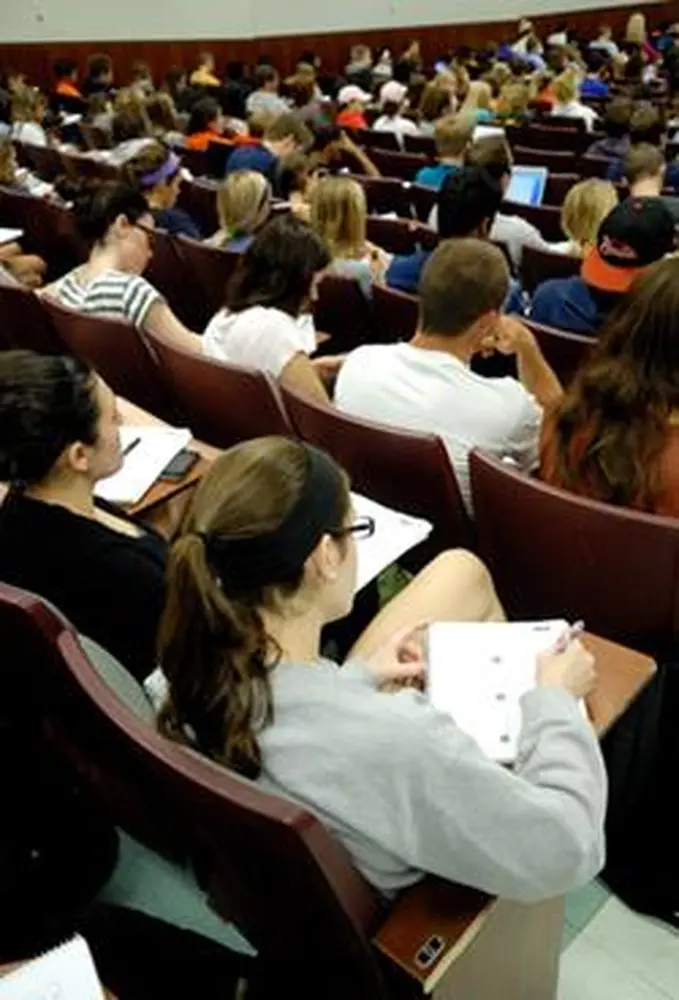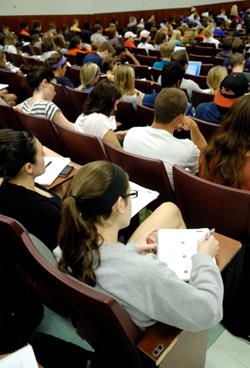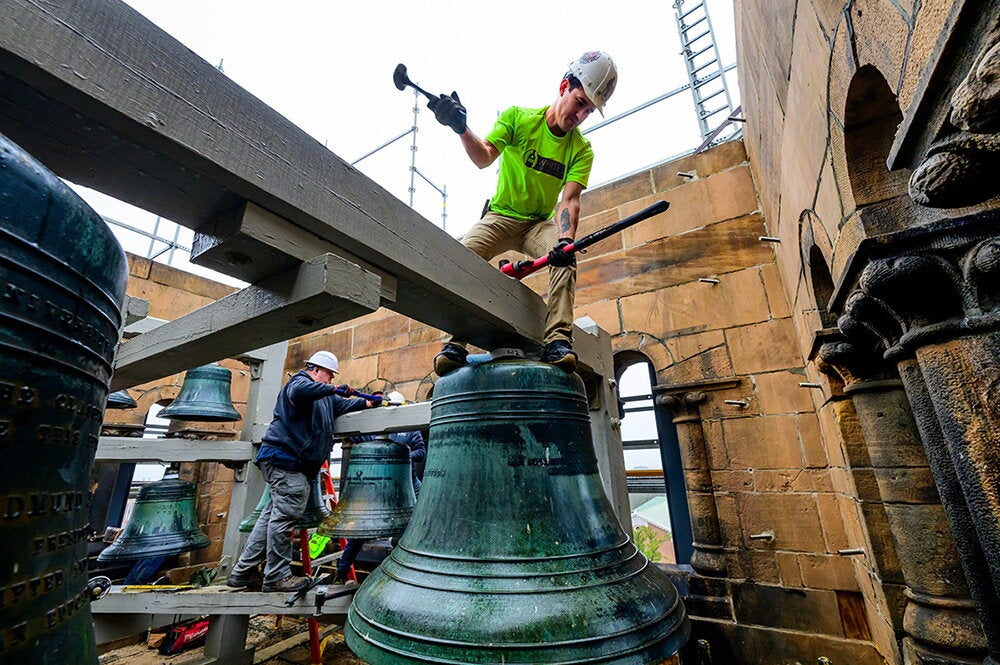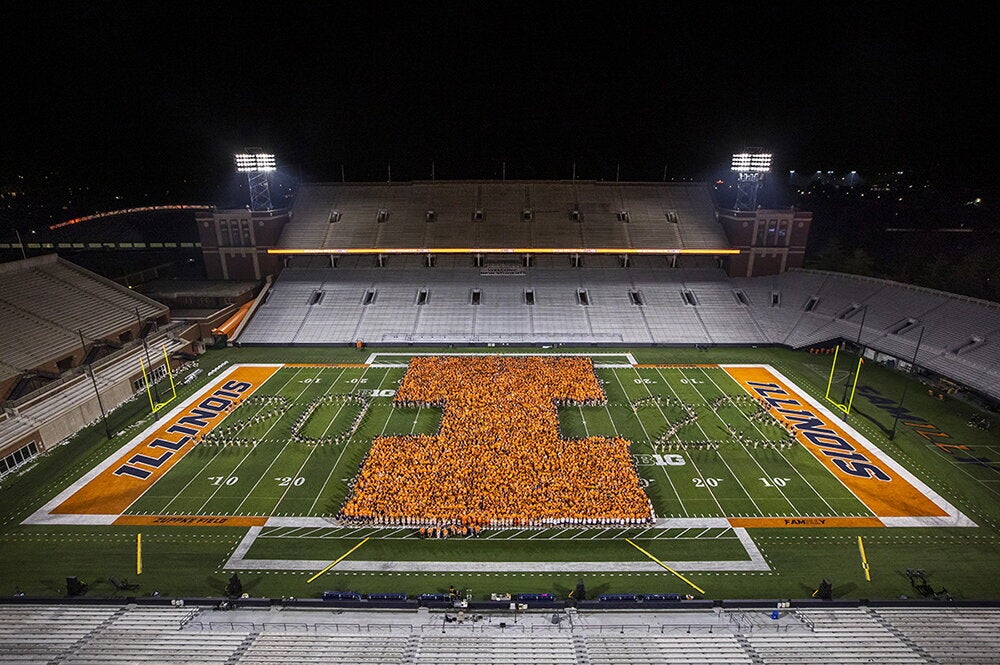

Learning occurs when you are introduced to a new fact or discovery. But you also learn when a familiar topic is presented to you from a new angle, which is the idea behind a new, non-traditional course initiative in the College of Liberal Arts and Sciences that brings together typically separate disciplines.
It’s called the “blockbuster” course initiative, and when it kicks off in the spring, students in the program will be considering, among other things, the automobile’s impact on the nature of labor and the future of sustainable development in the Midwest. The idea is to inspire students to consider a diversity of views as they solve important issues in society.
Diane Musumeci, acting associate dean for humanities and interdisciplinary programs, says the idea originated from a team of LAS faculty examining how to strengthen undergraduate education.
“The LAS blockbuster course initiative is a direct result of [their] recommendation to provide undergraduates with opportunities to learn about issues of societal importance from multiple perspectives,” Musumeci says.
To that end, each course will be taught jointly by professors in different fields. For example, one course, “Material Culture: The Design, Culture & Engineering of the Automobile,” will be taught this spring by Professors Rayvon Fouche’ (history) and David Weightman (art and design), examining how the automobile impacts society and culture.
A second course, “Environmental Change and the Midwest: Mapping the Past, Modeling the Future,” will examine how to manage environmental and development issues in the Midwest by focusing on the fate of the Indiana Dunes. Students will be examining everything from historical literature to demographic data sets and policy papers. It will be co-taught by Professors Robert Pahre (political science) and Gillen Wood (English).
“Diversity of opinions and perspectives is essential to the essential functioning of a democratic society,” faculty wrote in their report that inspired the idea for the initiative. “The educated individual will be able to articulate a position; listen carefully to counter arguments; and successfully engage in logical, reasoned, rigorous debate.”


